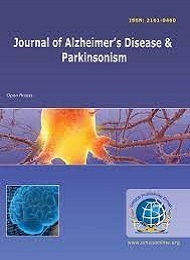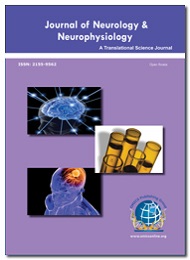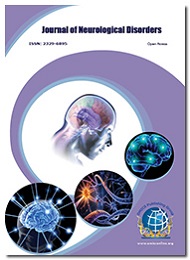Theme: Modernization Approach by Specialist to Cure Vascular Dementia
, Abstract Submission last date 28th August
VASCULAR DEMENTIA 2022
We are inviting you to “4th World Conference on Vascular Dementia & Movement Disorders” during September 22-23, 2022, at London,UK.
Vascular dementia is a general term describing problems with reasoning, planning, judgment, memory and other thought processes caused by brain damage from impaired blood flow to your brain.
Causes of Vascular Dementia: Vascular dementia occurs when vessels that supply blood to the brain become blocked or narrowed. Strokes take place when the supply of blood carrying oxygen to the brain is suddenly cut off. However, not all people with stroke will develop vascular dementia.
Factors that increase your risk of heart disease and stroke — including diabetes, high blood pressure, high cholesterol and smoking. Controlling these factors may help lower your chances of developing vascular dementia
Vascular dementia is the second-most-common type of dementia in the United States and Europe in the elderly; however it is the most common form in some parts of Asia. The incidence of the illness is 1.5% in Western countries and just about 2.2% in Japan. It accounts for 50% of all dementias in Japan, 20% to 40% in Europe and 15% in Latin America. The prevalence of dementia is 9 times higher in patients who have had a stroke than in controls. 25% of stroke patients develop new-onset dementia within 1 year of their stroke. The relative risk of incident dementia is 5.5% within 4 years of suffering a stroke.
Benefits of attending!
Benefits to Attend Vascular Dementia 2022
- Learning in a New Space
- Learning with the experts
- Novel techniques to benefit your research
- Lectures by active practitioners
- Networking with new people within your field
- Keynote forums by Prominent Professors, Doctors and Physicians
- Poster presentations by Young Researchers
- Learning about facts and statistics to better understand the market and industry
Target Audience:
- Business ambassadors
- Industrial Frontrunners
- Stroke Scientists, Neuro Oncologists
- CEO's and Directors
- Neurologist
- Neurosurgeons
- Psychiatrist
- Neuroscientist
- Head of department
- Professors and Students from Academia in the research of neurological disorders
Dementia is a wide category of brain diseases that cause an abiding and often moderate decrease in the capability to think and recall that is acute enough to affect a person's normal functioning. The most usual category of dementia is Alzheimer's disease, which makes up 50% to 70% of cases. The indications of dementia differ across types and stages of the diagnosis. The most usual affected areas are memory, visual-spatial, problem solving, language and attention. There is no known treatment for dementia. Cholinesterase inhibitors such as donepezil are frequently used and may be beneficial in moderate disorder.
Vascular dementia is also called multi-infarct dementia (MID) and vascular intellectual impedance. Dementia is a general term describing problems with reasoning, planning, judgment, memory and other thought processes caused by brain damage from impaired blood flow to your brain. People with Dementia give dynamic subjective hindrance, intensely or subacutely as in mellow psychological debilitation, every now and again step-wise, after various cerebrovascular occasions (strokes). According to a neurologist, Dementia is the second-most-common form of dementia after Alzheimer's disease (AD). . The temporal relationship between a stroke and cognitive deficits is needed to make the diagnosis. People with vascular dementia present with progressive cognitive impairment, acutely or sub acutely as in mild cognitive impairment, frequently step-wise, after multiple cerebrovascular events (strokes).
Vascular intellectual disability is a decrease in deduction capacities caused by a malady that harms the mind's veins. The vascular malady may cause intellectual hindrance all alone, and can likewise add to impedances in considering and conduct in a man with another cerebrum illness, for example, Alzheimer’s. Cognitive weakness normally goes with clinical disorders in Alzheimer’s related to the vascular ailment of the mind. In view of developing definitional criteria, the recurrence of subjective weakness inferable from cerebrovascular ailment is hard to decide. Dementia happens in up to 33% of elderly patients with stroke as opposed to an immaculate Dementia disorder.
Amyloid-related imaging abnormalities (ARIA) are abnormal differences seen in neuroimaging of Alzheimer's disease patients, associated with amyloid-modifying therapies, particularly human monoclonal antibodies such as aducanumab. There are two types of ARIA - ARIA-E and ARIA-H. The phenomenon was first seen in trials of bapineuzumab.
Alzheimer's disease (AD), also referred to simply as Alzheimer's, is a chronic neurodegenerative disease that usually starts slowly and gradually worsens over time. It is the cause of 60–70% of cases of dementia. The most common early symptom is difficulty in remembering recent events. As the disease advances, symptoms can include problems with language, disorientation (including easily getting lost), mood swings, and loss of motivation, not managing self-care, and behavioral issues. As a person's condition declines, they often withdraw from family and society. Gradually, bodily functions are lost, ultimately leading to death
People with Lewy body dementia have a progressive decline in their memory and ability to think; similar to Alzheimer’s disease. However, the cognitive ability or alertness of a person with Lewy body dementia is more likely to fluctuate from one moment to the next, which is not like Alzheimer’s disease. They also often have visual hallucinations (seeing things that aren’t there) and delusions (believing something that is not true). On the surface, people with Lewy body dementia often have problems with movement that resemble Parkinson’s disease. This is because the same structures of the brain are affected in Lewy body dementia and Parkinson’s disease.
- Causes of Lewy Body Dementia
- Symptoms of Lewy Body Dementia
- Diagnosing Lewy Body
- Dementia Cholinesterase Inhibitors
- Diagnosing dementia (general)
- Treating dementia
Neuro degeneration is the progressive loss of structure or function of neurons, including death of neurons. Many neurodegenerative diseases – including amyotrophic lateral sclerosis, Parkinson's disease, Alzheimer's disease, and Huntington's disease – occur as a result of neurodegenerative processes. Such diseases are incurable, resulting in progressive degeneration and/or death of neuron cells. As research progresses, many similarities appear that relate these diseases to one another on a sub-cellular level. Discovering these similarities offers hope for therapeutic advances that could ameliorate many diseases simultaneously
Central nervous system problems are also known as central nervous system disorders. These are the neurological problems that affect the function and structure of the brain and spinal cord, which form the central nervous system. Signs are like persistent headache; face pain, band and legs pain, inability to concentrate and slurred speech etc.
Aging is a main risk element for most common neurodegenerative problems, including mild cognitive impairment, dementias including cerebrovascular disease, Alzheimer's disease, Lou Gehrig's disease, and Parkinson's disease. While much research has focused on problems of aging, there are less informative studies on the molecular biology of the aging brain in the lack of neurodegenerative disease or the neuropsychological discription of healthy older adults. However, research suggests that the aging process is associated with several structural, chemical, and functional changes in the brain as well as a host of neurocognitive changes.
Dementia care management is nothing but care provided to dementia patients at home/hospital. In-home care includes a wide range of services provided in the home, rather than in a hospital or care facility. It can allow a person with Alzheimer's or other dementia to stay in his or her own home. It also can be of great assistance to caregivers. It can allow a person with Alzheimer's or other dementia to stay in his or her own home.
Dementia nurses can provide treatment, support and care for people with dementia and mental health problems. They might assess you at your home, and they advise you and your careers on ways of improving your health and quality of life. Dementia nurses do not normally carry out physical tasks like changing bandages or keeping saline etc. Dementia nurses will do psychological activities to care dementia patients.
Dementia is not a particular illness. It's a general term that portrays an extensive variety of symptoms associated with a decrease in memory or other speculation aptitudes sufficiently extreme to diminish a man's capacity to perform regular activities. Prevention of Dementia is the endeavor to abstain from creating dementia, endeavors to anticipate Dementia incorporate attempting to diminish hazard components for vascular sickness, including diabetes, hypertension, weight, smoking, and physical inertia. In Dementia vascular changes that start in brain areas that play a key role in storing and retrieving information may cause memory loss that looks very much like Alzheimer's disease
Neuropharmacology will give information about how drugs affect cellular function in the nervous system, and the neural mechanisms through which they influence behavior. There are two main branches of neuropharmacology: behavioral and molecular. Behavioral neuropharmacology focuses on the study of how drugs affect human behavior (neuro psychopharmacology), including the study of how drug dependence and addiction affect the human brain. Molecular neuropharmacology involves the study of neurons and their neurochemical interactions, with the overall goal of developing drugs that have beneficial effects on neurological function.
Novel therapeutics for Dementia:
Novel Therapeutic Technology is a leading pioneer in the development of sophisticated and practical drug delivery systems. NTT's Ethosome technology provides the means to significantly enhance drug penetration of topical delivery applications, exponentially increasing therapeutic efficiency. With worldwide recognized drugs combined with NTT know-how, Pharmaceutical companies are able to introduce new and better drugs to the market, thus greatly reducing side effects, improving patient compliance, and increasing the patient’s quality of life.
It is a branch of Medical Sciences majorly deals with Neuro tumors. Deals with Studies related to Brain and Spinal cord neoplasms. Neuro-oncology and Pediatric Neuro-oncology are the two different Concepts that differentiate the determining methodology of Neuro tumors. Neuro-oncology mainly includes especially related topics like Radiation therapy, Neurosurgery, Neuroimaging, social, Psychological, Neuropathology and psychiatric aspects.
Dynamic dementia, which is dementia that deteriorates with time, is the most widely recognized sort. Five phases of dynamic vascular dementia have been laid out. They are a piece of the Clinical Dementia Rating (CDR), which experts use to assess the movement of manifestations in patients with Dementia. Vascular brain changes often coexist with changes linked to other types of dementia, including Alzheimer's disease and dementia with Lewy body’s.T he five phases depict a patient's capacity to perform in six unique zones of discernment and working: introduction, memory, judgment, home and side interests, individual care, and group.
Advances in Dementia diagnosis
Headway in treatment in Dementia is required in comprehension underlying reasons for dementia. Memory treatment has indicated great consequences for Dementia patients. Dementia is a standout amongst the most exorbitant illness in the world, this treatment is anything but difficult to lead and cheap. Memory treatment utilizes past frequencies and urges patients to compose and clarify past rates which help in keeping up psychological wellness. As misery can be one of the most reasons for Alzheimer's psychotherapy helps such patients colossally. Dementia mind through cloud innovation enables patients in monitoring their conditions and advance to rate, supporting staff and arranging in everyday mind in Dementia. Headway in such treatments utilizing innovation and characteristic treatments will help doctors to treat vascular dementia successfully. New movements have been subject of dementia gatherings and prime wellspring of learning as for dementia, these dementia social events has taken one phase closer to Dementia cure.
The global market for treatments of syndromes like dementia and movement disorders was valued at 10.5 billion in 2011 and was estimated to reach $11.1 billion in 2012. Total market value is expected to reach $16.7 billion in 2017 after increasing at a five-year compound annual growth rate (CAGR) of 8.5%.
Someone in the world develops dementia every 3 seconds. There were an estimated 46.8 million people worldwide living with dementia in 2015 and this number is believed to be close to 50 million people in 2017. These numbers will almost double every 20 years, reaching 75 million in 2030 and 131.5 million in 2050. Much of the increase will be in developing countries. Already 58% of people with dementia live in low and middle income countries, but by 2050 this will rise to 68%. The fastest growth in the elderly population is taking place in China, India, and their south Asian and western Pacific neighbours.
Major Dementia and Alzheimer’s Societies and Associations around Globe:
|
Alzheimer's Australia |
Hilarescere Foundation in Italy |
|
Alzheimer Society of Bangladesh |
Alzheimer Support Group |
|
Alzheimer's Association |
Southern Clinical Neurological Society |
|
American Academy of Neurology |
ESNR European Society of Neuroradiology |
|
European Neurological Societies |
Alzheimer Austria |
|
Foundation Alzheimer Aruba (FAA) |
Alzheimer's disease Chinese |
|
Spanish Society of Neurology |
Alzheimer's Society |
|
Major Neurological Associations in Italy |
British brain tumor association |
Top Neuroscience Universities in Globe:
|
Dalhousie University |
University of Nottingham |
|
Leiden University |
Cardiff University |
|
Temple University USA |
University of Toronto |
|
University Oklahoma |
University Sheffield |
|
University of Bristol |
University California |
|
Florida International University |
University of Amsterdam |
|
University of Edinburgh |
Karolinska Institute |
|
University of Milan |
University of Gothenburg |
Hospital Associated with Dementia:
|
SBCC Baby & Child Clinic (Neurology Centre) |
Tang Neurology & Medical Clinic |
|
Vision 2 Engineering Pte. Ltd |
Raffles Neuroscience Centre |
|
P N Chong Neurology Clinic |
Mount Elizabeth Hospital |
|
Tan Chai Beng |
Dr Adrian Tan Keng Yew |
|
Ho Neurology Pte Ltd |
Gleneagles Hospital |
|
National Neuroscience Institute |
National University Hospital |
Top Dementia Companies:
|
Brainomix |
Polyneuron Pharmaceuticals AG Corp. |
|
reHaptix GmbH |
Biogen Idec |
|
KB Medical |
Intento SA |
|
OncoVision |
AcelRx Pharmaceuticals, Inc. |
|
Trevena |
AcelRx Pharmaceuticals, Inc. |
|
Mintlabs |
Mylan |
|
Actavis |
Bayer |
|
Lundbeck |
Novartis |
Conference Highlights
- Vascular dementia
- Vascular cognitive impairment
- Vascular dementia diagnosis and management
- Multi-infarct dementia
- Dementia Causes, Concerns and Preventions
- Alzheimer’s disease
- Lewy body Dementia
- Brain Diseases
- Neurodegenerative Diseases
- Ageing and Dementia
- Neuropharmacology
- Novel therapeutics for Dementia
- Neuro Oncology and CNS
- Advances in Dementia diagnosis
To share your views and research, please click here to register for the Conference.
To Collaborate Scientific Professionals around the World
| Conference Date | September 22-23, 2022 | ||
| Sponsors & Exhibitors |
|
||
| Speaker Opportunity Closed | |||
| Poster Opportunity Closed | Click Here to View | ||







